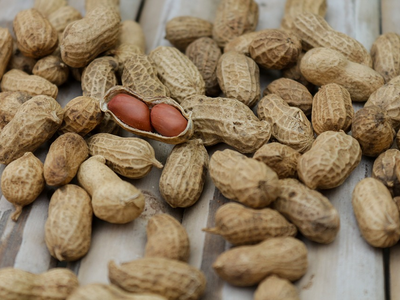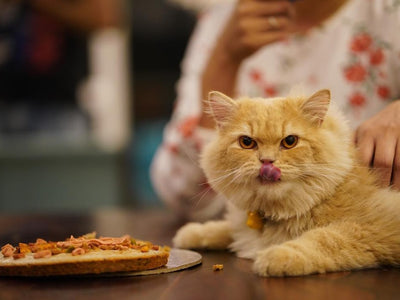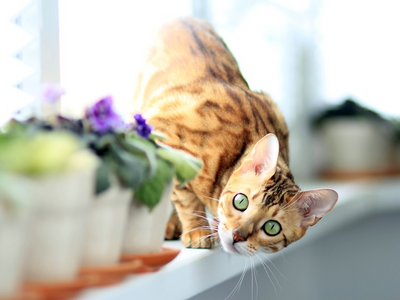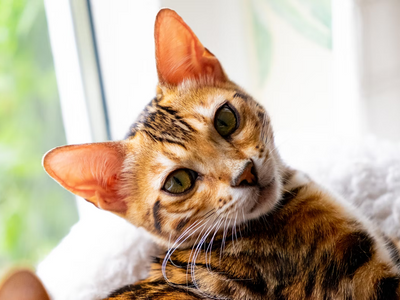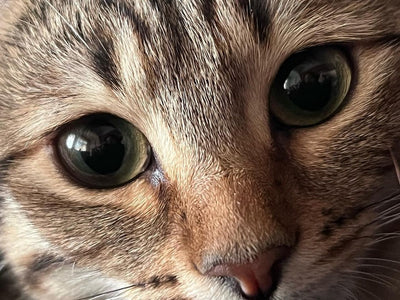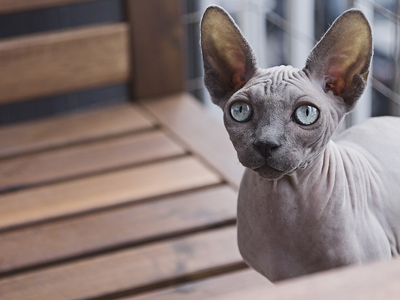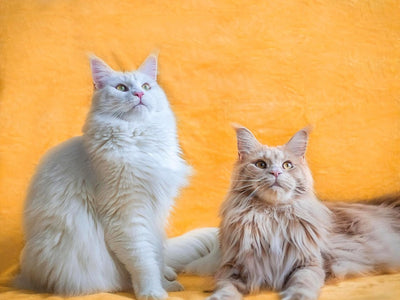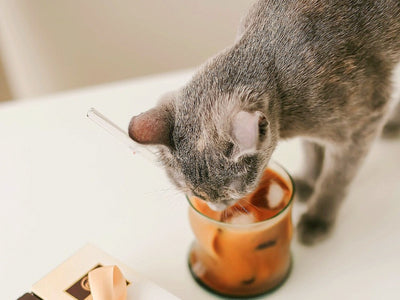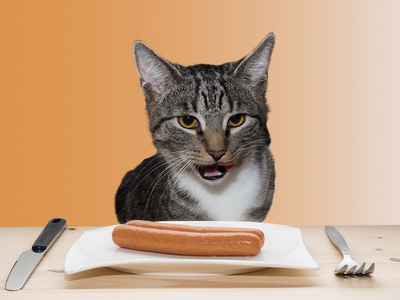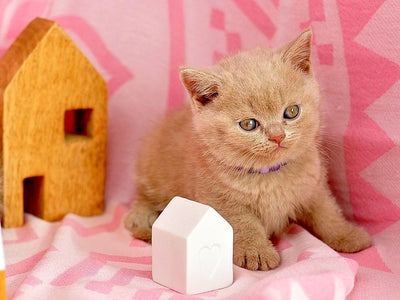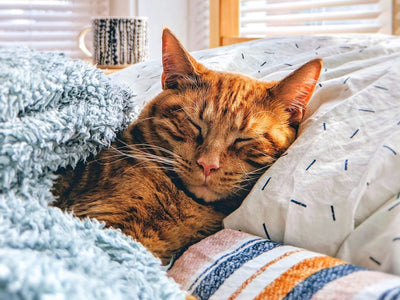28.03.2022
Do cats eat birds? Untamed explains your feline’s predatory instincts
Cats are famously portrayed as unable to resist the urge to pounce on a bird unlucky enough to cross their path. Do cats eat birds or merely use them as toys? Untamed has the answers!
In this article, we will answer the following questions:
- Why do cats hunt?
- Do cats eat the birds they catch?
- Is a bird a safe and nutritious meal for felines?
- How can you stop your cat from hunting birds?
Cats are natural hunters!
Felines are predatory animals. Even your sweet domestic cat has hunting instincts, although their desire to hunt is not linked to hunger but the thrill of the chase. Hunting is a form of mental stimulation and sport.
Domestic cats are known to prey on small animals and insects, including:
- Birds
- Mice
- Cockroaches
- Grasshoppers
- Scorpions
Fun or hunger—do cats eat birds?
If your cat manages to catch a bird, they will probably play with it and throw it around but not devour it as a hungry animal would.
Cats don't often eat the birds they catch, and if they do, they'll probably stick to specific parts. The following will most likely be left untouched:
- Beak
- Feathers
- Gizzard
- Large bones
- Tail
Your feline friend's digestive system is designed to process raw meat and small bones, so they'll focus on the muscle and organs. The bird's beak and spines in feathers are made of beta-keratin, indigestible for your kitty.
Another problem with feathers and large bones is that your cat can't swallow them. Since both parts of the bird are a choking hazard, your cat will skip them instinctively.

Hold still! I’m gonna get you!
Source: 165106
I brought you a gift!
Have you ever woken up to find a dead bird on your bedroom floor, or worse, at the foot of your bed? Consider it an act of love from your furry companion!
Your feline’s ancestors lived in clowders and are still wired to share the prey with their family, so if your kitty brings you a dead bird, it’s a sign of respect and affection.

A dead bird might not look beautiful to you, but it’s the thought that counts.
Source: Karolina Grabowska
Why do cats eat birds?
Catching and eating birds comes naturally to wild cats because birds are an excellent source of nutrients and moisture. Why does your furry friend still feel the need to hunt with all the food their heart desires? Here are some common reasons:
- Their regular meals lack essential nutrients—Cats thrive on a diet rich in animal protein. Specific micronutrients, such as taurine, are only available in meat, so if your cat's diet lacks animal protein, your kitty will look to compensate by hunting
- They are hungry—If your furry friend’s portions are too small, they will probably take matters into their own paws. Their first choice would be rodents, geckos, and insects since they are easier to catch, but birds will also be a delicious challenge
- The dishes you serve are boring—Even if you feed your cat tasty and nutrient-dense meals, they’ll get bored if the menu is monotonous. Your cat could be hunting birds because they are bored with the taste of their food and need something fresh
Is it safe for my cat to eat birds?
Eating birds is not dangerous as long as the prey is healthy and disease-free. Your cat’s digestive system can effortlessly process raw meat and bones, which contain beneficial minerals like potassium, calcium, magnesium, and phosphorus. Keep in mind that cats with sensitive digestive systems can experience stomach upsets after such a feast.
Let’s examine the risks involved in eating birds:
|
Potential problems |
Causes, symptoms, and treatment |
|
Avian flu |
The specific virus is H5N1. An infected cat can transmit the virus to other felines. Symptoms include:
Severe infections can result in death. If you think your cat might have avian flu, you should:
|
|
Food poisoning or an upset stomach |
Your cat could have eaten a sick bird which often leads to gastrointestinal problems. Symptoms include:
If your feline shows signs of food poisoning, take them to the vet instantly |
|
Parasites |
Birds may carry various parasites, including:
Symptoms of parasitic infection include weight loss and a shabby looking coat. Your cat might not get ill but can be a carrier and transmit microbes to humans. Visit the vet if the signs of parasitic infection appear |
|
Salmonellosis |
It is known as Songbird fever. The disease is caused by salmonella bacteria. If infected with salmonella, your cat can feel unwell for seven to ten days. Symptoms include: If your cat has any of these symptoms, take them to the vet. Treatment consists of antibiotics and fluid therapy |

So close, yet, so far…
Source: David Selbert
How do I stop my cat from hunting and eating birds?
There are a few things you can do to stop your cat from hunting, as follows:
- Sterilise your cat—Unless you are passionate about raising kittens, you should get your cat sterilised. It reduces aggressive behaviour, makes your kitty calmer, and mellows the hunting instincts
- Play with your furry friend more—Since hunting is a form of mental and physical stimulation, spend more time playing with your cat. You can also provide interactive toys for your feline companion. Playtime takes a lot of energy, so your cat will be too tired to stalk real birds
- Serve high-quality food rich in protein—Your feline's diet is crucial because a full and healthy cat won’t crave fresh prey. The following nutrients are essential in your kitty's meals
- Animal protein
- Animal fat
- Vitamins and minerals
- Water
Feline nutrition and hunting
More than 50% of your cat's food must be animal protein, while animal fat should not exceed 20%. Low-protein, bland food will awaken your cat's hunting instincts because they won't get all the necessary nutrients, prompting them to hunt for more substantial meals. If your cat hunts birds or other prey, check the label on their food. Products containing useless fillers like grain, rice, corn, or potatoes cannot keep your feline satiated and happy.
The best food type for your cat is wet food because it usually contains all the essential nutrients and enough moisture. Semi-moist products are high in salt, and dry food is typically high in carbs and lacks moisture.
If your cat is reluctant to eat wet food but feasts on birds any chance they get, opt for a different brand because they might be fed up with the taste.
Can cats eat raw food?
Cats in the wild eat fresh prey as soon as they kill it, but meat from the human supply chain gets frozen and defrosted a few times before reaching the end buyer, so it has a high chance of going bad and transmitting bacteria to your cat.
Even though raw chicken is high in protein, it is advisable to cook food before offering it to your cat. When cooking for your cat, don't add any seasoning as many human spices are bad for felines. We recommend gently steaming the dish to keep the taste and nutrients intact.

A nutritious meal plan customised for your feline companion!
Image (c) Untamed
Let your cat try Untamed, and they won't feel the need to hunt
Untamed offers the optimal meal plan for your cat. Our wet food is delicious and nutritious, and with various dishes on the menu, you can create a customised meal plan for your furry friend. Take our quick quiz to get a yummy starter pack at the best price.
Cats love Untamed because:
- We make our dishes with whole meat of human-grade quality, including chicken breast, salmon, tuna, duck, ham, prawns, sardines, and shrimp
- Our meals contain twice the amount of protein as the industry standard and are easy to digest
- All recipes have been formulated by vets to meet the nutritional needs of your cat
- Every dish is delicious. We steam them gently to keep the meat tasty and tender
- Hypoallergenic ingredients make our food perfect for kitties prone to allergies
Untamed works for cats of all ages and breeds, so you can safely give it to Siamese, Bengal, British Shorthair, Persian, and Ragdoll kitties, whether they're kittens, adults, or seniors. Fresh meat and fish in gravy and jelly will please even the fussiest felines.
Cats with sensitive tummies will get rid of gastrointestinal discomfort if you serve them our single-protein meals Tuck-in Tuna and Choka Chicken in Jelly. Untamed products with natural taste enhancers like ham can help felines with poor appetite or make the transition from dry to wet food easier.
More reasons to love Untamed
It’s no secret that we love cats, but we care about the environment too. That’s why all our packaging is 100% recyclable, and we source our ingredients from sustainable and responsible suppliers. Untamed business operations leave a neutral carbon footprint.
How do I order?
Untamed enables hassle-free online ordering of cat food. Here are the steps to follow:
- Visit our Try Now page
- Complete a short questionnaire
- Select a meal plan and place your order
Your Untamed order will arrive in a day with no shipping fees. We can send a fresh batch every month if your feline enjoys our delicacies. In case your cat likes versatility in their diet, you can add or change dishes in their meal plan anytime—let us know and we'll alter your cat food subscription plan.
Switched my cat to Untamed. What can I expect?
Other than a cat who looks forward to mealtimes and licks their bowl clean, you can expect a healthier and happier feline.

I will allow one cuddle.
Image (c) Untamed
Here are the expected benefits of the Untamed diet:
|
Timeline |
Benefits |
|
One week |
|
|
Two months |
|
|
Four months |
|
|
Six months and beyond |
|
My cat has caught a bird, now what?
If your cat catches a bird, don’t chase or yell at them. Remember, hunting is an instinct in felines, and they should not be punished for it.
Your best option is to distract your cat with a toy or treat. If you manage to get the bird away from your feline companion, dispose of it if it is dead. If the bird has been injured, you should take it to the vet. Wear gloves when handling the bird to protect yourself from any disease it might be carrying.
If you want to distract your feline companion with a snack, choose lean meat because it’s super tempting, and they’ll most likely give up on the bird immediately. Here are some irresistible distractions:
If you choose ham, only give your cat a small piece. Cured deli products like ham and bacon are high in sodium and fat and should be offered in moderation.
Birds are not a disaster, but is there anything my cat should never eat?
Cats should never eat specific human products because they are harmful or toxic. Check the bad actors in your feline’s diet:
- Dairy—Most felines are lactose intolerant and unable to digest dairy. Never give your cat milk, ice cream, or cheese. Consumption of dairy products may cause diarrhoea and vomiting
- Caffeine—Cats are more sensitive to the effects of caffeine than humans. If your cat ingests the substance, it will raise their blood pressure and cause digestive problems. In severe cases, drinking coffee or soda could damage your kitty’s heart and nervous system
- Chocolate—It also contains theobromine which is toxic to cats. Eating chocolate can cause tremors, seizures, and an abnormal heart rate
- Alcohol—Ethanol poisoning is extremely dangerous. If your cat ingests alcohol, they will start feeling drowsy, lose their motor skills, and develop digestive issues. In severe cases, your feline could lose consciousness, experience breathing difficulties, or die
- Raw bread—It can rise in your kitty’s tummy, causing bloating and digestive issues. Yeast in the dough produces ethanol, which can be absorbed into your cat’s bloodstream, causing seizures and liver failure
- Grapes—The fruit is toxic to cats. Eating grapes causes gastrointestinal issues and could lead to kidney failure in severe cases
- Citrus fruit—It contains essential oils like limonene, linalool, and psoralens, all of which are poisonous to cats. Touching these fruits can cause skin irritations
- Garlic—It contains an oxidant called n-propyl disulfide. Eating garlic causes hemolysis (the breaking down of red blood cells)
Other popular human foods to avoid include onions, mushrooms, raw eggs, chives, and coconut flesh and water.
What’s safe for cats?
Cats can have some fruits and veggies in moderation, but plants provide zero nutritional value to felines. Vegan and vegetarian diets are not suitable for your furry friend even if you offer the highest quality products.
It’s unlikely that your feline would be interested in eating fruits and vegetables, but if they are, these are safe:
Cats with health issues must not be offered fruits and veggies and should stick to a protein-rich diet.
Check out our other guides to what cats can or cannot eat:
|
|
Can birds and cats be housemates?
Keeping a cat and bird in the same house can be challenging, but it is not impossible. If you would like your cat and bird to live in harmony under one roof, follow these tips:
|
What to do |
How to do it |
|
Let them meet |
|
|
Keep them at a safe distance |
|

![Associated image for What human food can Sphynx cats eat? [Comprehensive list]](http://untamed.com/cdn/shop/articles/what_human_food_can_sphynx_cats_eat_Featured_400x300_crop_center.jpg?v=1648705074)
